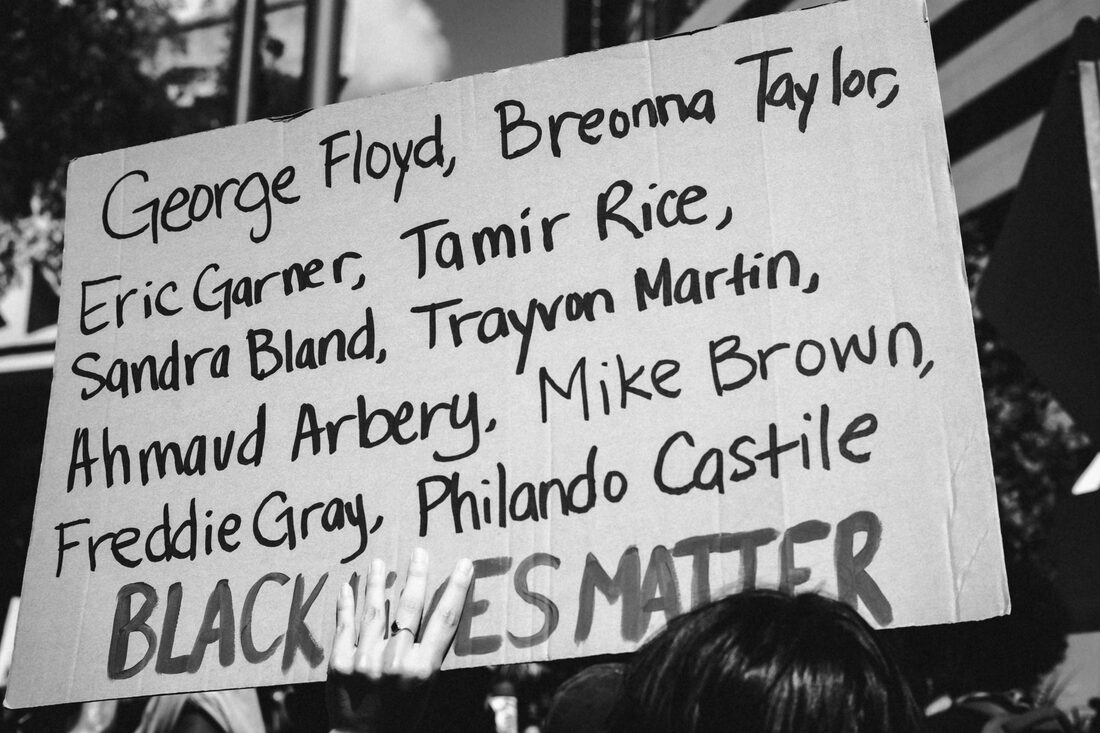The death of George Floyd sent shockwaves, anger, and unrest throughout the world. Once again, we witnessed yet another Black person lose their life violently and senselessly at the hands of police; the difference here is that people couldn't claim that "we need more information before taking next steps". By combining videos from witnesses on the scene as well as security cameras, we saw each detail minute by minute that ultimately led to the death of George Floyd. As protests erupted around the world, children couldn't help but be made fully aware of the injustices many face because of the color of their skin.
As children inquire by asking those "who?" " what?", "when?", "where?", "why?", and "how?" type of questions, here are a few tips that you may want to consider when having this tough conversation with them.
TIPS
1. Be open & honest. Share with them that people are treated differently because of the color of their skin. This prepares children to speak up and challenge those issues when they see them occur.
2. True mindfulness. Be mindful of what you say and do around your children. If you know that you were raised to have certain biases against people from different racial backgrounds, but you don't want to impart that on your own children, then be mindful of your words and actions. An African Proverb says "what the child says, he has heard at home"...so choose your words and actions wisely.
3. Be proactive. Take a stand against injustice and encourage activism by promoting ways you and your family can get involved. By taking a stand (or a knee) against racial injustice, you show your children how to honor and value the differences of others. *Do keep in mind that your talks about race and racism should be developmentally appropriate for your children.
4. Educate yourself. Recently I had a conversation with an older Black woman who shared with me that she was embarrassed to say that she had never heard of Juneteenth until this year. As we know, books and curriculum in schools do not highlight the depth and the rich history that Black people have in this country and beyond. Educate yourself so that you and your family learn more about the kingdoms and dynasties of Black Kings and Queens of this world (yes...Black History started centuries before slavery in America). Learn about Black Wallstreet in Tulsa, Oklahoma. Learn about the founding of Historically Black Colleges & Universities. Learn about the challenges that Black soliders faced while fighting for a country that only saw them as 3/5 of a person (as noted in the Thirteenth Amendment). To educate yourself and begin to understand the perseverance of a people who continue to refuse to be denied, could possibly give you a different perspective on who they truly are and why we are adamant when we say that "Black Lives Matter".
Under this week's Intentional Toolkit I have included a couple of articles about how you can talk to your child about protest, and racial injustices. I have also included the titles of some of my favorite books that highlight the power of protests as well as Black Excellence. I also talk about this important topic on this week's episode of the Intentional Instruction Podcast; as always, I hope you find these resources useful. I'll be taking the month of July off, but will return in August, just in time for Back to School. Although I'm unsure of what Back to School will look like this year (virtual or in school), I look forward to sharing more helpful resources with you. Until next time...go out there and be GREAT!




 RSS Feed
RSS Feed
